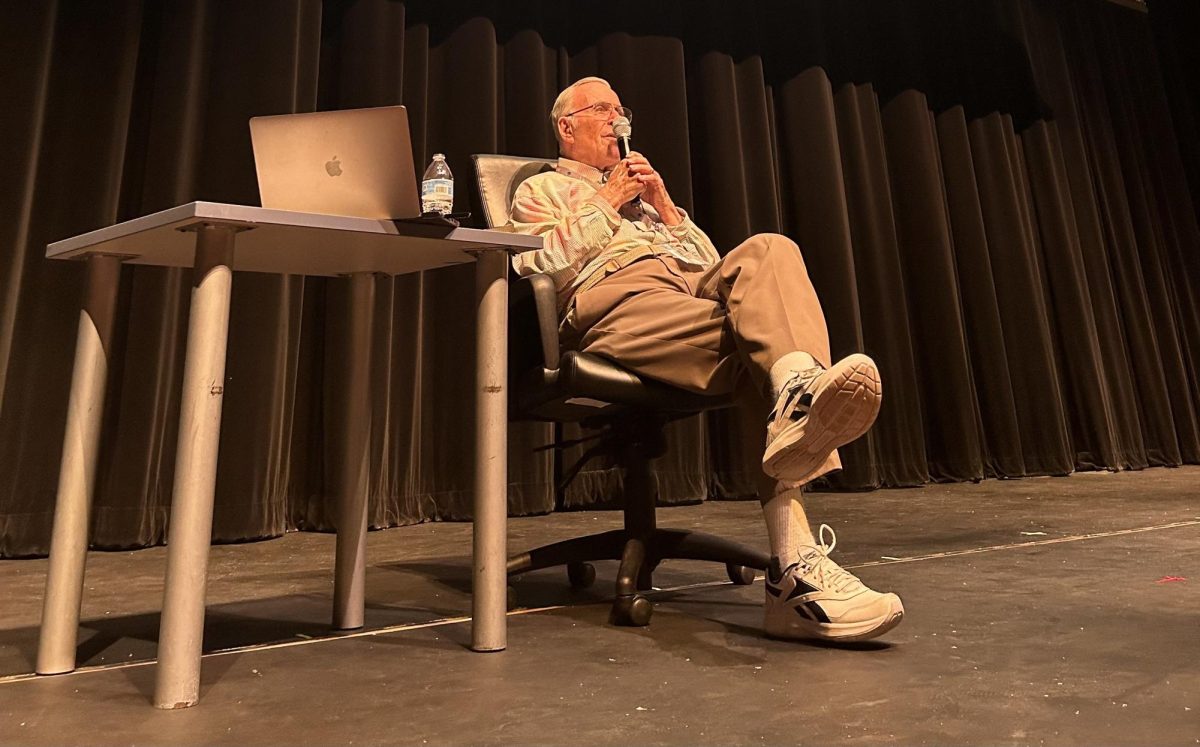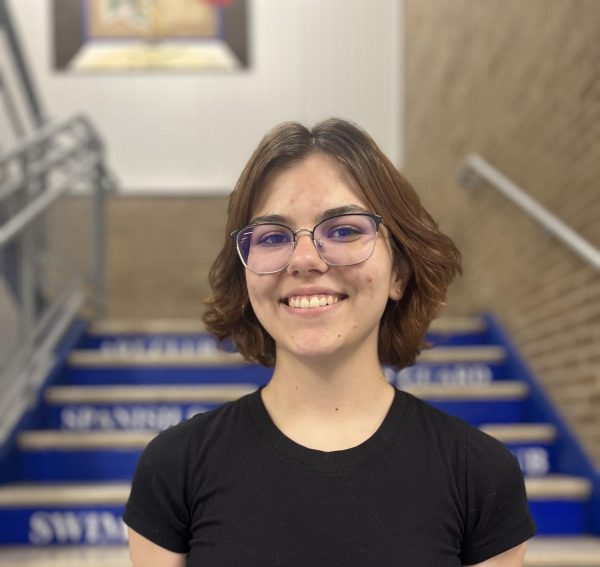International Holocaust Remembrance Day is quickly approaching, just around the corner now on January 27. It is often said that history is taught so that it is not repeated, and this sentiment is especially true when it comes to atrocities such as the Holocaust. However, there are some things history class cannot teach, which is what makes the stories of people like Steen Metz, Holocaust survivor who is visiting LZHS on January 22nd, especially important.
Metz was only a little boy when the Nazi’s invaded his home country of Denmark in 1940. He and his family faced the occupation for three years before being sent to the Theresienstadt Concentration Camp in Czechoslovakia in 1943, when Metz was only 8 years old. While Theresienstadt was a work camp, not an extermination camp such as Auschwitz, death and disease still ran rampant; Metz’s own father died after six months of back breaking labor and starvation.
As one of some 15,000 children sent to Theresienstadt, Metz was one of the 1500 that survived to be liberated by the Red Cross in April, 1945—just a month before the camp’s new gas chamber was set to be put to use. Metz and his mother, the sole survivors of their family, returned to Denmark where he lived for the rest of his childhood and young adult life.
Now, as a husband, father, and retiree, Metz shares his story and has been since 2011. He has a published book, A Danish Boy in Theresienstadt, and gives presentations at schools and events around the world.
For the past 4 years, Metz has given an annual presentation to students at LZHS about his experiences during the Holocaust. These presentations have been organized by staff members at LZHS, such as Kim Ferraro, social studies teacher and sponsor for the Diversity and Equity Committee.
According to Ferraro, who has seen Metz’s presentation many times, his story is especially impactful as a survivor who was so young and was sent to a lesser known concentration camp, since many students may not have known about the existence of Theresienstadt at all, or the experiences of those incarcerated there.
“There’s maybe not as many narratives [like Steen’s],” Ferraro said. “People know Auschwitz, they know Dachau, they know that. But Steen, he’s from Denmark. He doesn’t have the same story as many Holocaust survivors, or the main narrative that is out there. […] Also, the fact of how young he was when he was placed in a concentration camp is just heartbreaking.”
For this reason, and many others, she urges students to take the time to attend Metz’s presentation, and to seek out opportunities to hear the stories of Holocaust survivors.
“I think it’s so important to learn oral history in general. […] I think it is so much more meaningful for students to hear from people directly involved in a historical event [because] it’s way better than hearing it from me or reading it in a book,” Ferraro said. “The other thing too is obviously just that the topic is one of the worst atrocities [in world history], and so I think it’s important to [understand] these atrocities so we do not repeat them.”
This event was organized by the Diversity and Equity Committee at LZHS; Manjusha Peddireddy, senior Diversity and Equity Committee member, was very involved in the organization of this event, and thinks it is an important experience and will be impactful on students.
“I would hope that the presentation allows students to properly comprehend the horrors that people had to endure during that time,” Peddireddy said. “Sure, we read about them in books during Holocaust units at school, but it doesn’t compare to hearing about all the horrors of this time from someone who experienced it, and they’re standing right in front of you.”
Edward Demyanov, junior who attended Metz’s presentation last year, found that a particular part of his story effected him for than others.
“His description of how being separated from his father impacted him and his mother added a very relatable emotional element to the story which helped to communicate the gravity of the Holocaust,” Demyanov said.
Considering many Holocaust survivors have been passing away in recent years due to old age, Ferraro believes that it is especially important to hear these stories now. However, as opportunities to hear from Holocaust survivors dwindle, there are other impactful ways to learn about the Holocaust, that is not from a history class.
“Our Illinois Holocaust Museum [in Skokie] has a fantastic website that actually has a lot of oral histories. And I know, like a bunch of other historical organizations, many museums try to collect [stories] from people who have lived through these historical events,” Ferraro said.
Nevertheless, nothing can replace the experience of meeting a survivor face to face and hearing their story from them. If you are interested in attending this presentation, please use this link to sign up, and inform your 7th and 8th period teachers ahead of time that you will be attending.
“It is now my life’s work to share my experiences with as many people as possible,” Metz said, on his website. “I’m determined to keep the stories and memories alive.”


